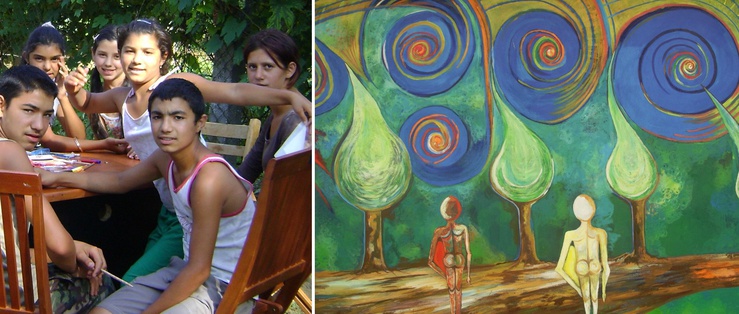
Social lending: Noba.hu and the problematic Hungarian 'peer to peer' system
Published on
Since their emergence in 2005 'person to person' or 'p2p' lending platforms have become an increasing global alternative to conventional banking. But Hungary's version of the online banking model has found its ability to make the concept financially appealing to potential clientele stifled by Hungarian law
When Hungary joined the EU in 2004 they wouldn't have expected an international financial crisis to follow so swiftly and cruelly. It did, in October 2008. Foreign investors dispersed and average Hungarians struggled to pay back foreign currency loans on the back of a depreciating forint. A 25 billion euro IMF-led international bailout (equal to what eurozone Greece needs today) was required to prevent economic collapse. Now in Budapest, a city through which 15 million gallons of thermal water pass each day, liquidity is still a problem for both the banks and the citizens. Most Hungarians, young and old alike, are limited in their options.
Insitutional banks out, social lenders in
It's led some to think of an alternative, in the mould of Zopa ('zone of possible agreement'), a UK 'p2p' platform launched in 2005. In January 2009 Peter Petrovics and former banker Charlie Szabo brought p2p lending to Hungary as Noba.hu. We're in a small ground level office draped in the shadows of St Stephen's Basilica. Peter quickly clarifies the important concept. 'Noba is not a bank. It's a place where those who want to borrow go directly to those who want to lend. As a 'social lending platform' Noba cuts banks out of the lending process. People seeking small loans submit online applications directly to an open community of lenders.' Unlike a bank too, the idea is to drive the cost of borrowing down. 'Borrowers can set a top interest rate, the maximum they would be willing to pay. Once the loan has been funded by the lenders, other lenders can outbid them by offering lower interest rates. Loans are capped at 4, 000 euros (£3, 589) for the first loan and 12, 000 euros (£10, 766) for the second. Apart from that particular limit there's also a lot of negotiation.'
Noba cuts banks out of the lending process
Of the roughly 3442 people registered on Noba, many may just be interested in the concept and seek to understand, while others may be sceptical and never once participate. In fact, money changes hands between just a fraction of those registered. Communications advisor Eszter Pásztor is an avid proponent of p2p and a certain beneficiary of Noba. In 2009 she borrowed 200, 000 HUF (758 euros, £680) to finance the first step of Freskófalu, an ambitious project to drag the village of Bodvalenke in northern Hungary out of dire poverty. The 100% Noba community loan allowed Eszter to create a website to launch the project. 'It's very human and personal,' she says. 'It has the potential to develop into a powerful social tool,' she adds, believing that a real network of support and expertise 'grows organically around the p2p community.'

P2p Noba: the legal glitch
Eszter claims that one problem threatens to derail the entire p2p project, 'unless Hungarian law adopts just two simple phrases.' She alludes to an article in Hungarian law making lending for interest a privilege strictly reserved to banks; an issue that the UK, the Netherlands (Boober.nl) and Germany (Smava.de) have overcome, according to Peter. In Hungary, private individuals are allowed to give only a single loan per year. The second loan is considered as providing commercial banking services. This means people participating in a p2p loan project as lenders are only allowed to lend the money at 0% interest, unless these people are registered financial institutions. Most aren't; so who then are the people lending money on Noba and why, if they stand to gain nothing and risk their entire investment?
'P2p is a nice way to keep an eye out for opportunity and innovation'
The response comes over a long lunchtime coffee in a Budapest shopping centre. Bandor Nagy, a lender on Noba, is a business consultant and life coach. Financially comfortable, he's also very socially motivated. He wants to give back; a possibility which p2p lending on Noba has given him. The risk is minimal, as currently so is the possibility of making a considerable profit on your investment, but he doesn't seem to mind. 'I see someone who has a good idea and I think, well I wanna be a part of that.' To date Nagy has supported four projects on Noba, including his own project to get Hungarian kids playing Korfball, a ball sport born in Flanders. After likening p2p to an enjoyable 'social gamble', it becomes clear that Bandor views p2p as a fun and interactive way to be involved with the community around him. 'It's a nice way to keep an eye out for opportunity and innovation,' he says.
Gambling on good?
Of course not everyone in Hungary is as socially conscientious as Bandor. Despite the plaudits of those from the Noba community, it would be wrong to assume Noba is flourishing in Hungary. The lenders and borrowers community is less than constant. As Bandor explains, 'there is a current lack of really interesting projects.' Clearly most Hungarians have not embraced a system which currently fails to offer serious earning possibilities. Peter Petrovics is the type of guy who by all accounts rarely stops working. 'I'm encouraged by the fact that people have embraced Noba even with its pink elephant,' he concludes. 'It's a sign of something significant.' The framework, software and the checks and balance systems have also already proved a success and he is confident it can still work. But unfortunately Peter is not holding all the cards. The future of Hungarian p2p is bound up all too closely to Hungary's stance on private lending. A stance promoted in no insignificant fashion by an important Hungarian institution: its banks.
Many thanks to the cafebabel.com team in Budapest
Images: ©Noba.hu; ©bodvalenke.eu



